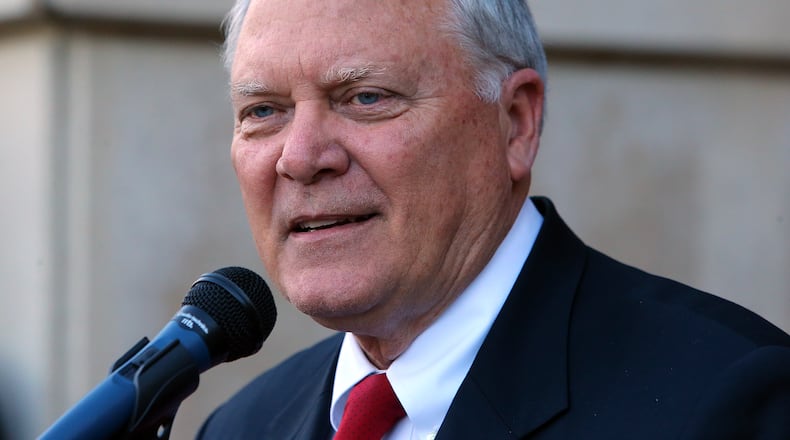Nathan Deal's campaign was unhappy with my Monday column in the print AJC, which also ran on the blog.
If you read it, you will see the point wasn't either candidate's education platform, but the misplaced focus in this contest on the HOPE Scholarship, which, in my view, is in no danger.
My main point: We ought to be discussing the bigger question, which is what the role of the state should even be in education reform.
In the meantime, here is Deal campaign's response. This response underscores how close the Deal camp considers this race to be.
The Carter folks may have a response and I will post that, too.
This was sent to me by Jen Talaber, communications director for Deal for Governor.
By Jen Talaber
After reading your column “Vision over HOPE," I wanted to respond to a couple of points you made.
In 2011, Gov. Nathan Deal worked with a bipartisan group of lawmakers to save HOPE from the brink of bankruptcy. Gov. Zell Miller recognized this and endorsed him for re-election. Because of his efforts, HOPE scholarship remains one of the most generous in the nation and Georgia Pre-K remains a national model.
On the other hand, Carter's $140,000 household income cap wouldn't come close to saving HOPE. It would have bankrupted HOPE. It only excludes 6 percent of households. The real number would have started in the low 100,000s three years ago and then gone down almost every year. It would quickly be below $100,000, which is middle class territory.
But you contend that “the more pressing question in the race for governor is who has a better vision for education,” so allow me to focus on that, as well as a few other claims.
Deal was raised on a farm by two public school teachers. His parents, Noah and Mary, met in a classroom and taught for 70 years combined. Deal's wife, Sandra, was a public school educator for decades. She would enlist his help on grading students' papers and tests, and their four children attended Hall County public schools.
Since taking office, education has been one of Deal's top priorities. He believes a strong education leads to a strong economy, and his record demonstrates this commitment. Throughout the depths of the Great Recession, Deal cut the size of state government significantly without raising taxes so that he could hold the line on education spending, his top budget priority. Deal increased education spending during his first term by 8.95 percent while cutting taxes on Georgia's families and job creators. He has allocated the highest percentage of the state budget towards k-12 funding since the mid-1960s.
This year, Deal's budget increased education spending by more than half a billion dollars, the biggest increase in seven years. This money allowed local school systems to give teachers raises, eliminate furlough days and restore a full 180-day school year.
Deal’s investment in education includes:
- $1.6 million for reading mentors
- REACH scholarships to assist low-income students with college tuition
- Zell Miller HOPE Grant
- Implementation of merit-based evaluation system for educators
- Professional development training for teachers
- $45 million in this year's budget to connect classrooms to the Internet
- Plans to update our funding formula to bring classrooms into the 21st century
- Seeking reforms to rescue students in failing schools
Senator Carter voted for Deal’s first three budgets, but inexplicably voted against this one. He wants to create a separate education budget that non-partisan education experts have dismissed. Carter’s plan to pay for a $1 billion increase in education funding using tax cheats and deadbeats has been dismissed as a gimmick by the left-leaning Georgia Budget and Policy Institute. He also plans to cut a “giant amount of waste” to pay for education, though he can’t identify what programs to eliminate.
Naming a “Georgia Education Week” or embarking on a statewide education “epiphany tour” does not constitute vision, passion or leadership. Senator Carter is running a campaign based on symbolic gestures and empty rhetoric. Deal, on the other hand, will continue investing in education and ensuring that those students have jobs here in Georgia once they graduate.
About the Author
Keep Reading
The Latest
Featured


